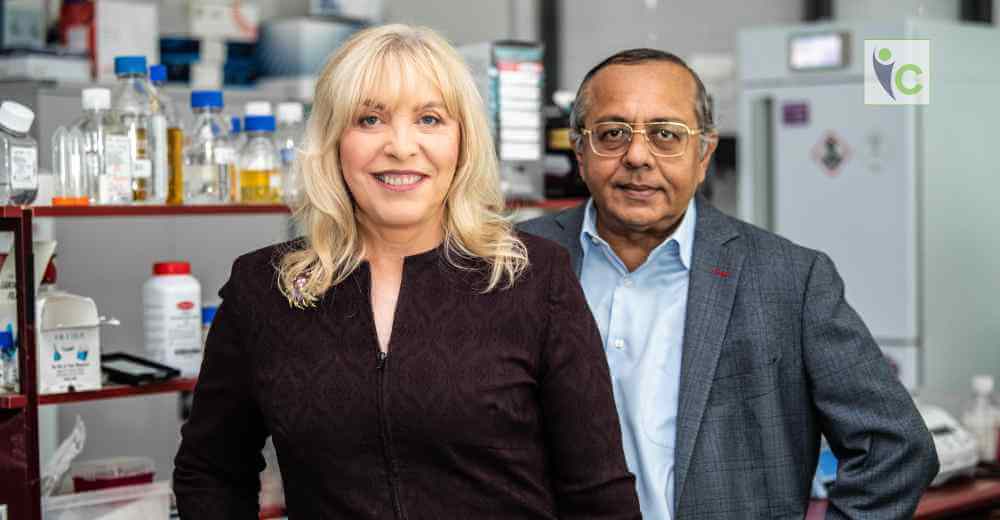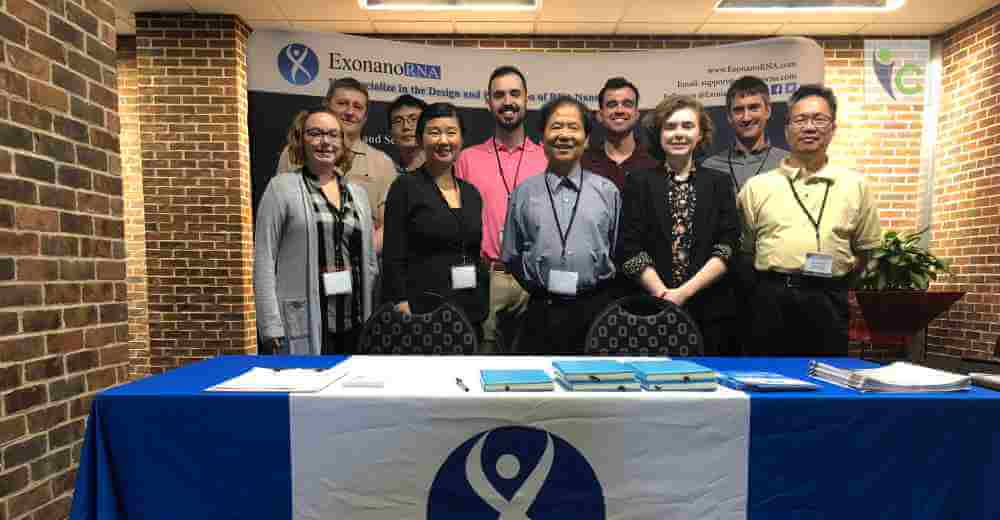Nanoscience and nanotechnology are revolutionising medicine in providing solutions in therapeutics, diagnostics, and implantable devices for diagnosis and repair.
Nanotechnology is already showing promise in oncology, particularly for drug delivery and theranostics. One such recent approach for cancer therapeutics is an innovative Cyto-Immunotherapy nanomedicine platform developed by EnGeneIC Pty Ltd. This globally unique nanocell (EDV; EnGeneIC Dream Vector), carries a drug payload targeted to cancer cells and at the same time promotes and anti-tumour immune response. The EDV has demonstrated safety, increased overall survival, and anti-tumor response in end-stage Mesothelioma, Glioblastoma, and Pancreatic cancer patients.
EnGeneIC: A Novel anti-cancer nanocell
EnGeneIC was founded in 2001 by Dr. Jennifer MacDiarmid and Dr. Himanshu Brahmbhatt, the Co-founders, Joint-CEOs, and Directors, popularly known as H & J.
The company was awarded the 2019 Australian Financial Review “Most Innovative Company In Australia And New Zealand and Company with The Best Innovation And The Best Innovation Program.”
EnGeneIC is a clinical-stage biopharmaceutical company based in Sydney, Australia with a US subsidiary in New York, and is the sole owner of the globally unique EDV platform technology with over 420 patents granted worldwide and patent life currently out to 2040.
The company is committed to bringing “light at the end of the tunnel” to cancer patients worldwide, who have failed all treatment options and those who have intractable tumours with limited treatment options. EDVs also have a relatively low cost of goods and have the potential to be affordable for patients world-wide.
EnGeneIC is now in Phase IIa clinical trials in several cancers with highly promising results (though early stage) in end-stage pancreatic cancer patients.
The Founder/CEO Duo
Jennifer and Himanshu have built EnGeneIC from concept to a clinical-stage biopharmaceutical company. Their efforts have enabled them to raise over $80 million to fund EnGeneIC’s development and operations. In 2007, the Australian national TV channel (ABC) produced an Australian Story, “For the Holy Grail”, on how H & J met, and the motivation and endeavour required for the pair to develop the EDV technology and EnGeneIC. The link can be found on the EnGeneIC website.
As well as worldwide patents protecting the EDV, the duo have co-authored papers in high impact journals including “Cancer Cell”, “Nature Biotechnology”, and “Lancet Oncology.”
Dr. Jennifer MacDiarmid is an alumnus of the University of New South Wales (Sydney) where she completed her M.Sc and PhD. She was a Senior Research Scientist at CSIRO. Jennifer was the 2016 winner of the Innovation category at “The Australian Financial Review/ Westpac, 100 Women of Influence Awards.”
Dr. Himanshu Brahmbhatt holds an M.Sc. from the MS University (Baroda, India) and Ph.D from the University of Adelaide (Australia). He carried out post-doctoral work in Geneva, Switzerland and Germany and was formerly a Principal Research Scientist at CSIRO.
Both are committed to the ongoing education of post-graduate students in translational oncology research and are co-supervising a number of students.
Obstacles Faced
Given the completely novel, complex and disruptive nature of the EDV technology, it has been an ongoing issue to get the message across the line with various scientific, clinical, business development and venture capital personnel and thus fund-raising has been challenging.
To break through this, the company has concentrated on obtaining robust clinical data, backed up by top-line science.
Functioning as Modern Medicine
According to H & J, all the existing and new therapies rely on either killing cancer cells, or stimulating specific parts of the immune system. This approach eventually results in poor response rates due to the rapid mutation of cancer cells and development of drug resistance. Additionally, current treatments are associated with moderate to high toxicity resulting in cancer patients suffering severe side effects.
In contrast to other cancer therapies, the EDV technology delivers super-poisonous drugs directly into cancer cells overcoming most drug resistance mechanisms and stimulating the key arms of the immune system which rapidly recognize malignant cells and destroy them. The treatment has minimal toxicity. It is the only technology currently that has been shown in Phase I and early results in Phase IIa clinical trials to effectively treat end-stage cancer patients who have run out of treatment options.
Avoiding the Effects of Nano-toxicity
The EDV nanocell is the world’s first nano-cell as compared to a synthetic nanoparticle. The EDV is a non-living particle derived from a genetically engineered non-pathogenic bacterium, Salmonella, but does not contain any genetic material so it can’t reproduce or cause disease.
Also, the nano cell at 400nm is too large to extravasate into non-target tissue and only falls out of circulation through the leaky blood vessels associated with the tumor micro-environment. With over 1,300 EDV doses administered in 130 end-stage cancer patients, many receiving from 15 to 45 repeat doses, the only toxicities observed are (i) a transient 0.5oC to 1oC rise in body temperature that returns to normal within 4 hrs, and (ii) some patients experience a 15 min to 20 min chills.
EnGeneIC is currently in Phase IIa clinical trials in several intractable cancers and aims to partner with Big Pharma to overtake the pivotal Phase IIb trials and gain regulatory approval.
To learn in detail about the contributions of EnGeneIC for the betterment of human health, visit https://www.engeneic.com/.















